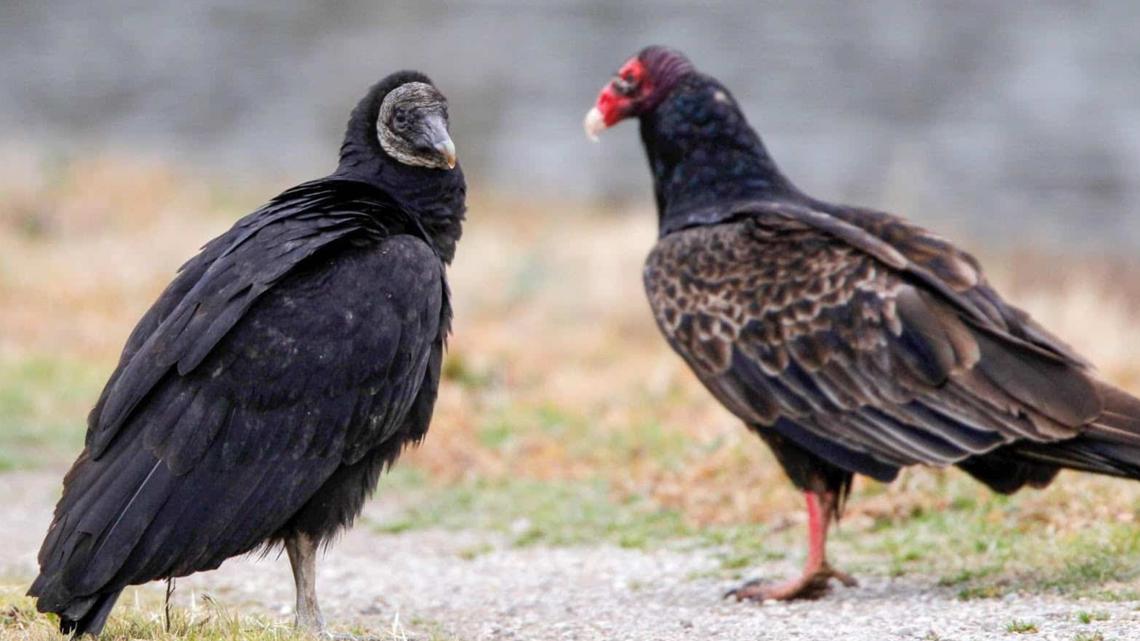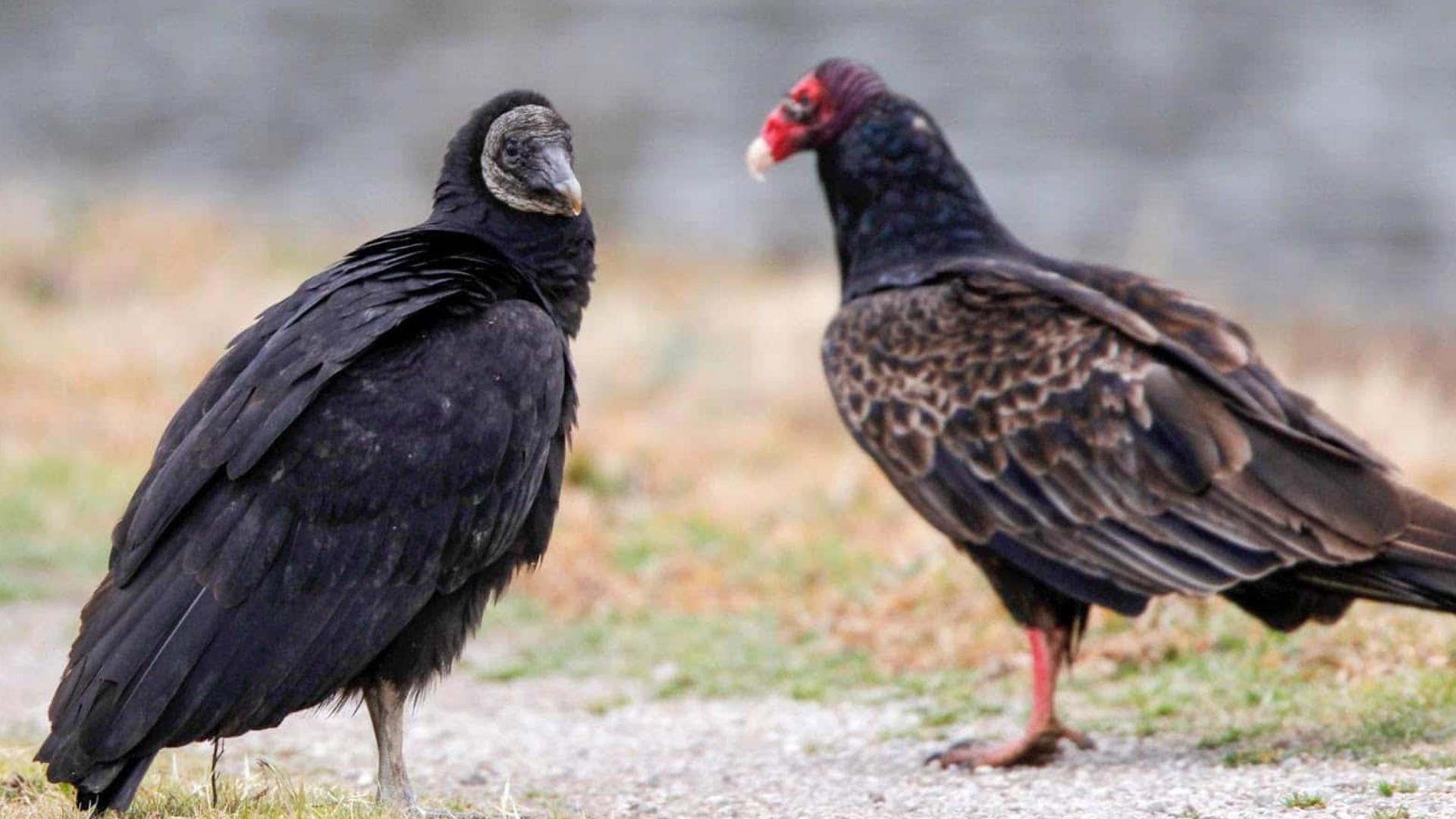SPRINGDALE, Ark. — The Arkansas Game and Fish Commission (AGFC) is asking the public for help in spotting special tagged black vultures.
The special tags are fitted to the birds' wings as part of a multi-year study by the AGFC and the U.S. Department of Agriculture to "better mediate conflicts with black vultures," a release from AGFC said.
The commission says that black vultures and turkey vultures play an important role in the ecosystem by eating dead animals, but that the aggression exhibited by black vultures can cause issues for cattle ranchers and livestock.
"The species can prey on calves, vulnerable cows, and smaller farm animals such as lambs and goats. Black vultures also are known to cause property damage to vehicles, boats and houses," AGFC said.
The commission says that they specifically prey upon newborn calves, cows that are giving birth, or smaller livestock.
Karen Rowe, a nongame migratory bird coordinator for the AGFC, says black vultures can also cause damage to property such as vehicles, boats, and houses.
“We have seen black vultures destroy the rubber seals around car windows and windshields as well as scratch up the paint when they have gathered around some of the boat ramps and parking areas to wildlife management areas in the state,” Rowe said. “They also will destroy roofing and caulking around vents and windows of homes if they establish themselves in one spot too long.”
89 black vultures were trapped and tagged near the Arkansas-Missouri border, and the USDA and study partners hope to track the birds' movement to "better understand their movements and reactions to various management tools used to deter them from nuisance situations," AGFC said.
The white tag was placed on each bird's right wing. Each tag has a visible number and letter, according to the release.
Additionally, 28 of the vultures were outfitted with radio transmitters that track movements.
“While there are a number of management tools we can recommend to people experiencing vulture conflict issues, we don’t fully know how the use of these tools may affect their behavior and movements,” USDA Wildlife Biologist Eric Tillman said.
Tillman says that there are still questions about the behaviors of the black vultures and why they act out.
“Do they adjust their home range, alter their roosting network, or permanently abandon the conflict area? Or do they just return after management is completed? With this study, we hope to answer some of those questions," Tillman said.


To help spot them, the commission says that the vultures have a large, black body with a bare, black head.
They typically fly here than the red-headed turkey vultures.
To fend them off, AGFC says that people can use non-lethal methods to deter them, such as loud noises, spraying with a hose, or pyrotechnics.
Removing dead animals and cutting down dead tree snags and possible roosting sites also would help, the commission said.
AGFC notes that if you are having troubles with black vultures causing damage, you can request assistance by contacting the USDA Animal and Plant Health Inspection Service - Wildlife Services. The service can be reached at 501-835-2318.
The commission warns against trying to kill them, as the birds are protected by the Migratory Bird Treaty Act of 1918 and can't killed without a permit obtained through the Arkansas Farm Bureau.
Birdwatchers, livestock owners, landowners and anyone else is encouraged to report tagged birds to the United States Geological Survey’s Bird Banding Lab online at reportband.gov.
Sightings can also be emailed to Tillman at Eric.A.Tillman@usda.gov.
Watch 5NEWS on YouTube.
Download the 5NEWS app on your smartphone:
Stream 5NEWS 24/7 on the 5+ app: How to watch the 5+ app on your streaming device
To report a typo or grammatical error, please email KFSMDigitalTeam@tegna.com and detail which story you're referring to.

